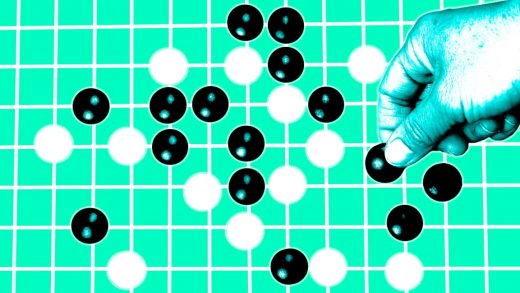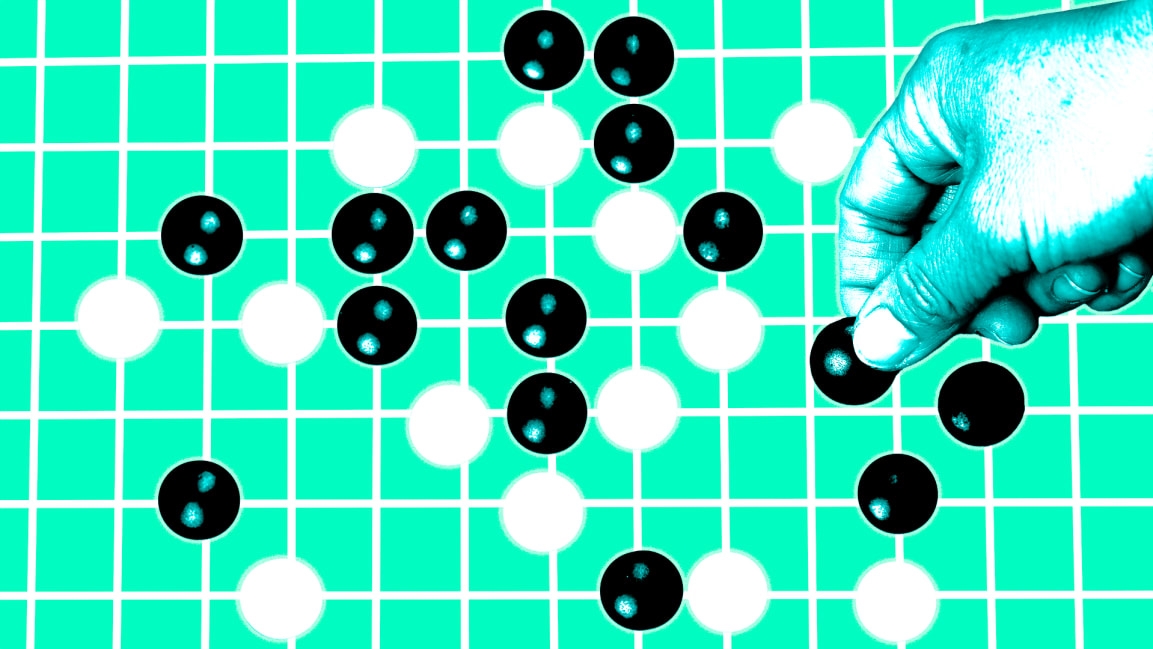How Google tried—and failed—to use AlphaGo as a bridge to China
In the spring of 2017, a year after the match in Korea, AlphaGo played its next match, in Wuzhen, China, an ancient water town 80 miles south of Shanghai along the Yangtze River. With its lily ponds, stone bridges, and narrow boat canals that snaked between rows of small wooden houses topped by rock-tile roofs, Wuzhen is a village meant to look as it had centuries before. Then a 200,000-square-foot conference center rises up among the rice paddies. It looks a lot like the wooden houses spread across the village, except it’s the size of a soccer stadium. Its roof spans more than 2.5 trillion tiles. Built to host the World Internet Conference, an annual gathering where Chinese authorities trumpeted the rise of new internet technologies and marked the ways they would regulate and control the spread of information, it was now hosting a match between AlphaGo and the Chinese grand master Ke Jie, the current No.-1-ranked Go player in the world.
The morning of the first game, inside a private room down a side hall from the cavernous auditorium where the match was due to be played, Demis Hassabis sat in a plush, oversized, cream-colored chair in front of a wall painted like an afternoon sky. This was the theme across the building: cloud-strewn afternoon skies. Wearing a dark-blue suit with a small round royal-blue pin on the lapel and no necktie—suddenly looking older and more polished than he had the year before—Hassabis said AlphaGo was now much more talented. Since the match in Korea, DeepMind had spent months improving the machine’s design, and AlphaGo had spent many more playing game after game against itself, learning entirely new skills through digital trial and error. Hassabis was confident the machine was now immune to the kind of sudden meltdown that arrived during the fourth game in Korea, when Lee Sedol, with Move 78, exposed a gap in its knowledge of the game. “A big part of what we were trying to do with the new architecture was close the knowledge gap,” Hassabis said. The new architecture was also more efficient. It could train itself in a fraction of the time, and once trained, it could run on a single computer chip (a Google TPU, naturally). Though Hassabis didn’t exactly say so, it was clear, even then, before the first move of the first game, that the 19-year-old Ke Jie had no chance of winning. The Google powers that be had arranged the match as a valedictory lap for AlphaGo—and as a way of easing the company’s return to China.
The company saw AlphaGo as the ideal vehicle. In China, Go was a national game.
In 2010, Google had suddenly and dramatically pulled out of China, moving its Chinese-language search engine to Hong Kong after accusing the government of hacking into its corporate network and eavesdropping on the Gmail accounts of human-rights activists. The message, from Larry Page, Sergey Brin, and Eric Schmidt, had been that Google was leaving not only because of the hack but because it could no longer abide government censorship of news stories, websites, and social media on the Google search engine. The new Hong Kong servers sat outside what Westerners called “the Great Firewall of China.” Several weeks later, as Google knew they would, officials in Beijing brought the curtain down on these Hong Kong machines, barring access to anyone on the mainland, and this was the way it stayed for seven years. But by 2017, Google was not what it once had been. In creating Alphabet, the umbrella company that oversaw Google, DeepMind, and various sister companies, Page and Brin had stepped away from the tech giant they had built over the previous two decades, putting each company in the hands of other executives and, it seemed, inching toward an early retirement. Under its new CEO, Sundar Pichai, Google was having second thoughts about China. The market was too big to ignore. There were more people on the internet in China than people living in the United States—about 680 million—and that number was growing at a rate no other country could match. Google wanted back in.
The company saw AlphaGo as the ideal vehicle. In China, Go was a national game. An estimated 60 million Chinese had watched the match against Lee Sedol as it streamed over the internet. And as Google eyed the Chinese market, one of its primary aims was to promote its expertise in artificial intelligence. Even before the AlphaGo match with Lee Sedol, executives at Google and DeepMind had discussed the possibility of a second match in China that would pave a path back into the market for the Google search engine and the company’s many other online services, and after all the ballyhoo in Korea, the idea snowballed. They saw it as “ping-pong diplomacy,” akin to the United States staging table tennis matches in China during the 1970s as a way of easing diplomatic relations between the two countries. Google spent the next year planning AlphaGo’s visit to China, meeting with the national minister of sport and arranging for multiple internet and television services to broadcast the match. Sundar Pichai took three trips to China before the match, personally meeting with Ke Jie. The two posed for a photo on the Great Wall. Alongside the match itself, Google organized its own artificial-intelligence symposium in the same conference center, after the first game of the match and before the second. Both Jeff Dean and Eric Schmidt made the trip to China, and both were set to give speeches during this one-day mini-conference. Dozens of Chinese journalists descended on Wuzhen for the match, and many more traveled from around the world. When Demis Hassabis walked through the conference center before the first game, they photographed him like he was a pop star.
Later that morning, as Hassabis described the ongoing evolution of AlphaGo in the room with the afternoon sky painted on the wall, Ke Jie made the game’s first move in the auditorium, a few hundred feet away. Across the country, millions were poised to watch from afar. But they couldn’t. With a private order sent to all Chinese media in Wuzhen, the government shut down all internet and television broadcasts of the match. In China, the match would be seen only by the few hundred people allowed through the security gates leading into Wuzhen and then past the armed guards, electronic badge readers, and metal detectors at the front of the conference center. Newspapers and news sites could cover the match, but if they did, they were forbidden to use the word “Google.” As the first few moves of the match played out, Hassabis continued to describe the future of Google and DeepMind and its technologies. He did not mention the blackout.
Adapted from: Genius Makers: The Mavericks Who Brought AI to Google, Facebook and the World. Copyright © 2021 by Cade Metz.
Published by arrangement with Dutton, an imprint of Penguin Publishing Group, a division of Penguin Random House LLC.
(56)



